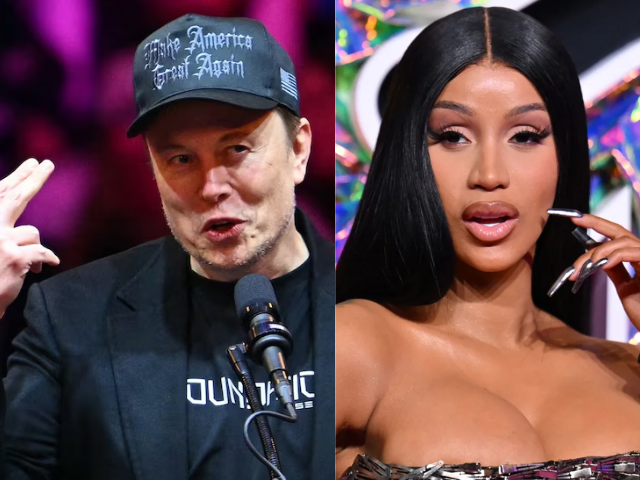Cardi B has forcefully responded to Tesla CEO Elon Musk’s criticism of her support for Democratic candidate Kamala Harris. The confrontation began when Musk shared footage of Cardi B’s recent campaign speech on X (formerly Twitter), dismissively labeling her a “puppet” who relies on fed lines.
Musk’s comment, which questioned the authenticity of both Cardi B and the Harris campaign, sparked an immediate and passionate response from the Grammy-winning artist. Drawing from her personal experience as the child of immigrants, Cardi B delivered a powerful rebuttal that resonated with many Americans who have faced similar struggles.
I’m not a puppet, Elon,” the rapper declared, highlighting her background as the daughter of immigrant parents who “had to work their ass off” to provide for her. She pointedly addressed her firsthand experience with economic hardship, citing her family’s reliance on welfare and Section 8 housing assistance. In a direct challenge to Musk’s understanding of everyday American struggles, she emphasized the systemic barriers many face, suggesting that the tech billionaire’s privileged background leaves him disconnected from these realities.
The exchange has brought attention to the broader narrative surrounding the upcoming presidential race, where Harris’s campaign has been working to connect with diverse voter constituencies. At a recent rally, Cardi B drew parallels between her own journey and Harris’s experience as a woman in a male-dominated field, speaking about the additional scrutiny and challenges both have faced in their respective careers.
“Women have to work ten times harder, perform ten times better, and still people question us, how we got to the top,” Cardi B stated in her rally speech, expressing solidarity with Harris’s journey. “I can’t stand a bully, but just like Kamala, I always stand up to one.”
The public disagreement between Cardi B and Musk reflects larger divisions within American society regarding representation, opportunity, and the role of immigrant success stories in shaping national politics. As Harris campaigns to potentially become the first Indian American president, her connection with various demographic groups, including the Indian American community, has come under increased scrutiny.
Recent polling data from the Carnegie Endowment for International Peace suggests that Harris may face challenges in maintaining the level of Indian American support that President Biden received in 2020. This dynamic adds complexity to the campaign’s efforts to build and maintain crucial coalition support heading into the November election.
The controversy also highlights the evolving role of celebrity voices in political discourse, particularly on social media platforms. Cardi B’s response, which concluded with a pointed request for Musk to “fix my algorithm,” underscores the ongoing debates about social media influence and fair platform access in political speech.
As the election approaches, this exchange exemplifies the intersection of celebrity influence, social media power dynamics, and the personal narratives that shape political discourse in America. Cardi B’s defense of her authenticity and her right to speak on political issues from personal experience has resonated with many who see their own stories reflected in her journey from humble beginnings to significant success.
The incident has sparked broader discussions about the nature of political authenticity, the value of lived experience in political discourse, and the ongoing challenges faced by women and immigrants in public life. As both Harris’s campaign and her opponents continue to vie for public support, the role of personal narratives and authentic voices in shaping voter perceptions remains a crucial factor in the electoral landscape.



